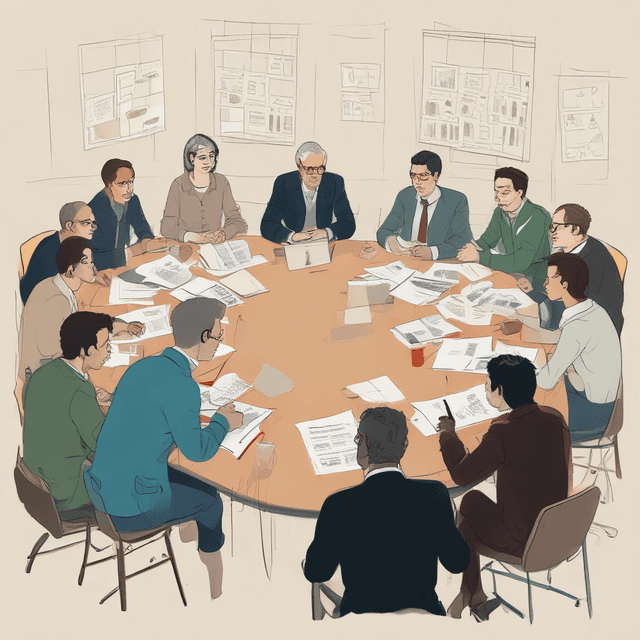
| Central issues | Inequality • Environmental sustainability • Global justice |
| Field of study | Economics |
| Key perspectives | Keynesian macroeconomics • Theories of economic development • Critiques of classical liberalism |
| Profession characteristics | Politically engaged • Ideologically heterogeneous • Diverse array of perspectives |
| Comparison to mainstream economics | Differs from the neoclassical paradigm that dominates in the primary timeline |
Economics is the social science concerned with the production, distribution, and consumption of goods and services. It examines how individuals, businesses, governments and societies make choices about allocating scarce resources to satisfy their wants and needs. While the basic subject matter of economics is similar across timelines, the specific theories, methodologies, and real-world applications of the field have evolved quite differently in this alternate universe.
The foundations of economic thinking were laid by thinkers in the 17th and 18th centuries, such as Adam Smith, David Ricardo, and Thomas Malthus. These classical economists grappled with questions of value, markets, trade, and the role of the state. However, their theories and models did not gain the same level of dominance in this timeline as they did in our own.
Instead, alternative schools of economic thought rose to prominence earlier and more forcefully. The socialist and Marxist critiques of capitalism, rooted in the writings of Karl Marx and Friedrich Engels, found a wider audience and influence. Meanwhile, the developmentalist perspectives of thinkers like Friedrich List, Raúl Prebisch, and Gunnar Myrdal gained traction in newly independent nations seeking economic transformation.
A major turning point came in the early 20th century with the emergence of Keynesian economics. Developed by the British economist John Maynard Keynes, Keynesianism challenged the classical belief in the self-regulating nature of free markets. Keynes argued that government intervention through fiscal and monetary policy was necessary to achieve full employment and economic stability.
Keynesian macroeconomics, focused on issues like aggregate demand, unemployment, and inflation, came to dominate economic policymaking in many countries, especially after the upheavals of the Great Depression and World War II. This approach stood in contrast to the microeconomic emphasis on individual choice and market equilibrium favored by classical and neoclassical thinkers.
As Keynesianism rose to prominence, so too did various critiques of the classical liberal model of unfettered capitalism. Thinkers like Karl Polanyi, Joan Robinson, and Gunnar Myrdal highlighted the social, political and ecological costs of unregulated markets. They argued that market forces alone could not ensure economic justice, environmental sustainability, or the provision of public goods.
These perspectives gained greater traction, leading to the expansion of the welfare state, increased government intervention in the economy, and a more central role for issues of inequality, power dynamics, and collective wellbeing in economic analysis. The theoretical work of Amartya Sen, Juliet Schor, and Herman Daly further developed these critiques in the late 20th century.
Reflecting the lived experiences of the Global South, a strong current of economic thought in this timeline has focused on issues of international development, global inequality, and environmental sustainability. Thinkers like Raúl Prebisch, Arturo Escobar, and Vandana Shiva have critiqued the domination of the global North and called for a reorientation of economic priorities and practices.
Their analyses have highlighted the legacy of colonialism, the asymmetric power relations embedded in the international trade and finance systems, and the need to respect indigenous knowledge and environmental limits. This has led to a greater emphasis on topics like dependency theory, postcolonial economics, and ecological economics within the discipline.
As a result of these diverse intellectual currents, economics in this timeline is a more pluralistic field compared to the relative theoretical consensus around neoclassical models in our own world. While macro- and development-oriented approaches hold greater sway, there remains vibrant debate between different schools of thought - Keynesian, Marxist, ecological, institutional, and others. The economics profession is also more actively engaged with broader social and political issues.
This diversity of perspectives has shaped both economic research and real-world policymaking. It has made the field more responsive to the pressing challenges of inequality, environmental degradation, and global justice. However, it has also sometimes led to clashes and polarization within the discipline. Nonetheless, this pluralistic approach continues to define the evolution of economic thought in this alternate timeline.